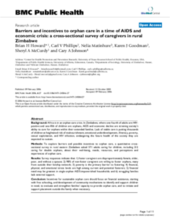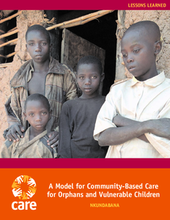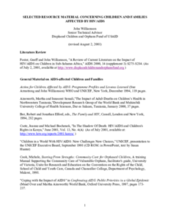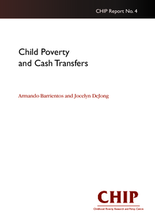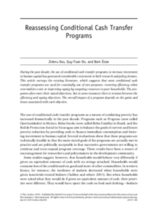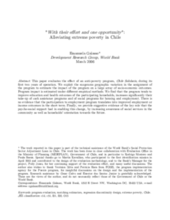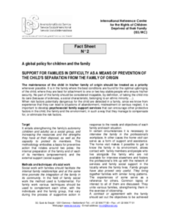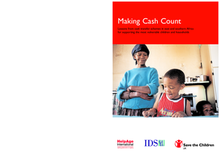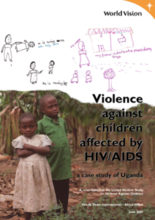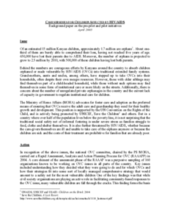Displaying 231 - 240 of 271
A survey of caregivers designed to assess barriers and incentives to fostering in rural Zimbabwe. Suggests that incentives for sustainable orphan care should focus on financial assistance.
A lessons learned document reviewing impacts of a community-based care and mentoring program for child-headed households in Rwanda.
An updated list of literature and bibliographies concerning children and families affected by HIV/AIDS around the world. Most of the resources are focused on sub-Saharan Africa.
This paper examines the effectiveness of targeted cash transfers programs on reducing childhood poverty. It also explored the comparatives effectiveness of different kinds of cash transfers.
This article reviews the existing literature on conditional cash transfer programs around the world. It urges the careful consideration of multiple factors in program planning and policy making to achieve successful long-term outcomes.
Evaluates the effect of an anti-poverty program, Chile Solidario, during its first two years of operation. Estimate the impact of the program on a large array of socio-economic outcomes including education, health, housing, and employment. Finds also suggest the key role that psycho-social support had in enabling this change, by increasing awareness of social services in the community as well as households’ orientation towards the future.
Brief summary of the importance of social work in preventing family separation, including increasing empowerment, social support and self-assessment processes.
This paper is a comprehensive examination of cash transfers in Africa and their impact on children. Case studies from Ethiopia, Zambia, Mozambique and Lesotho are discussed.
Report documenting participatory research conducted on violence against children affected by HIV/AIDS in Uganda. Particular focus on the stigmatisation and discrimination.
Outlines the impact of a pre-pilot conditional cash transfer scheme implemented in Kenya and defines key issues to be considered before moving forward into pilot and national schemes. Short annexes include tools/frameworks to guide implementation.

